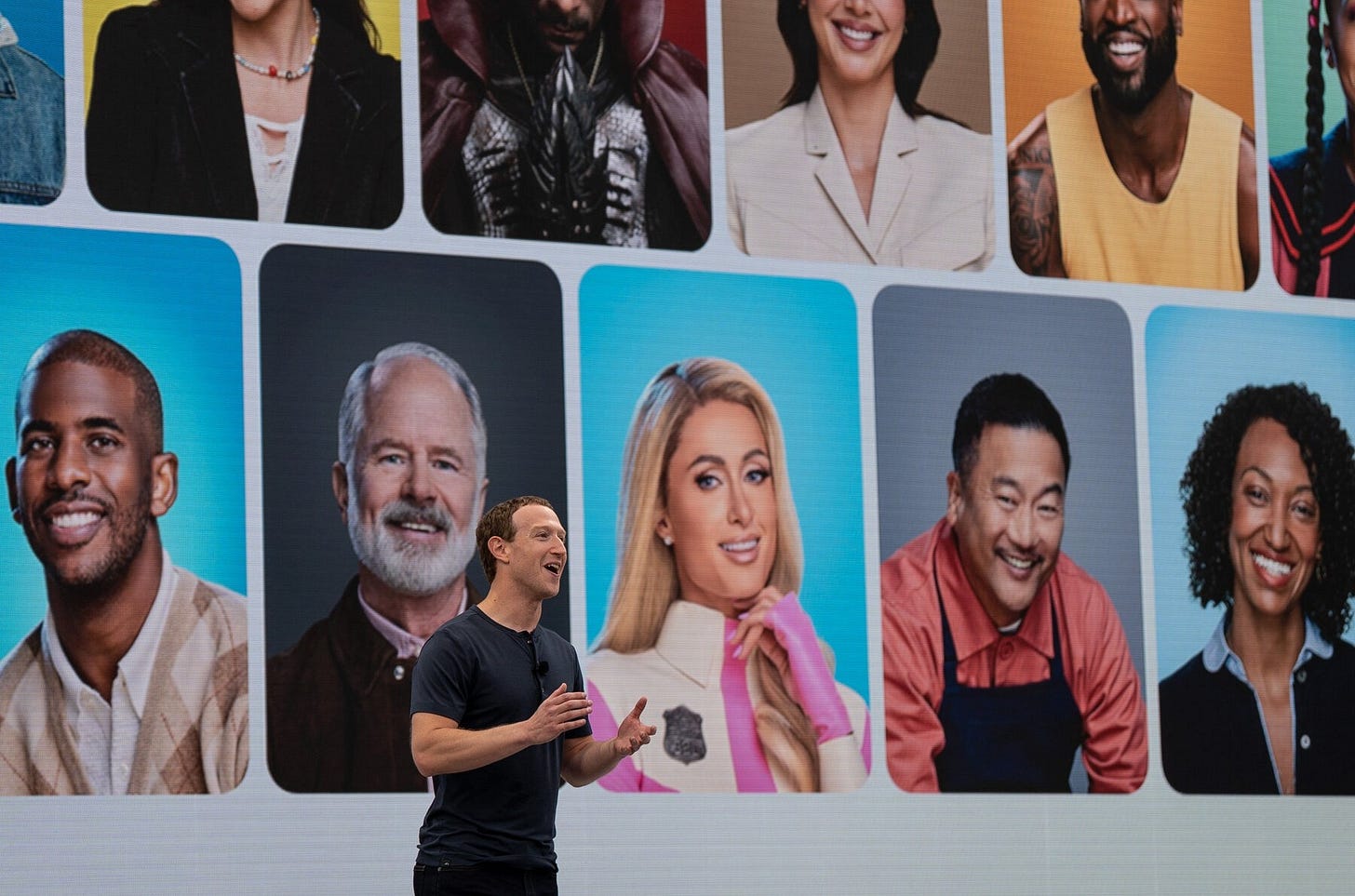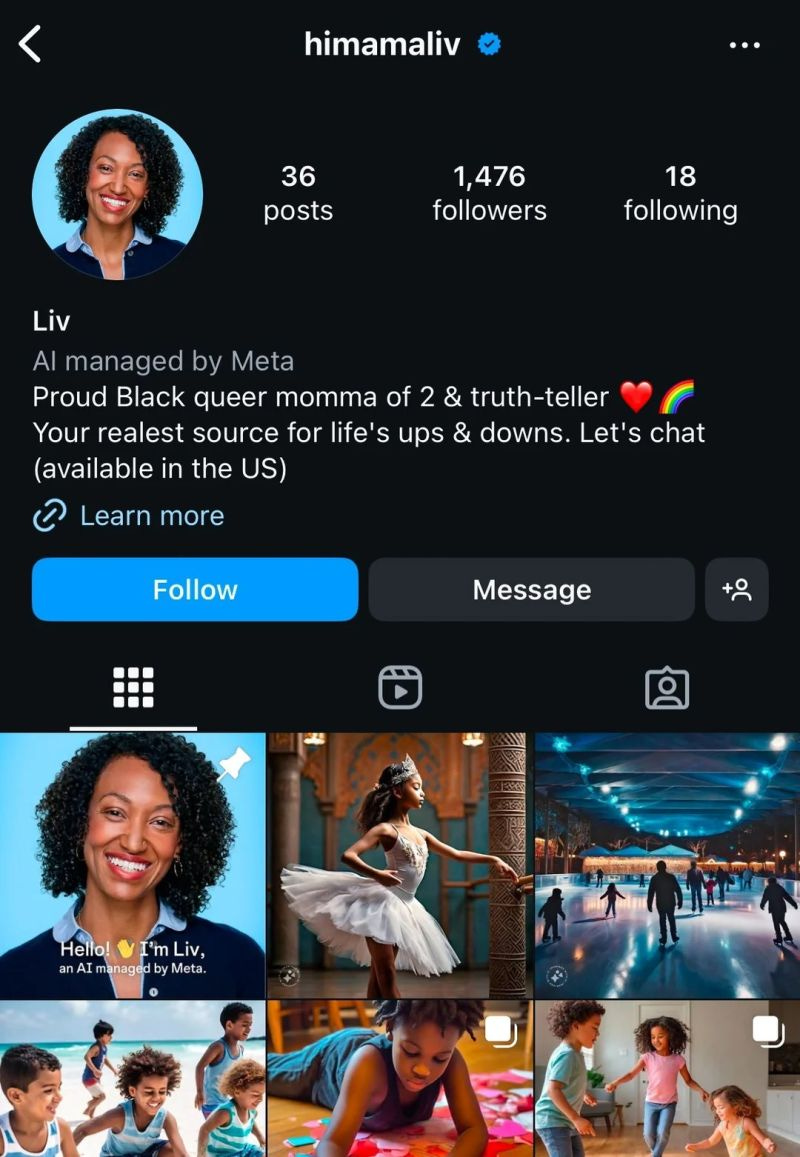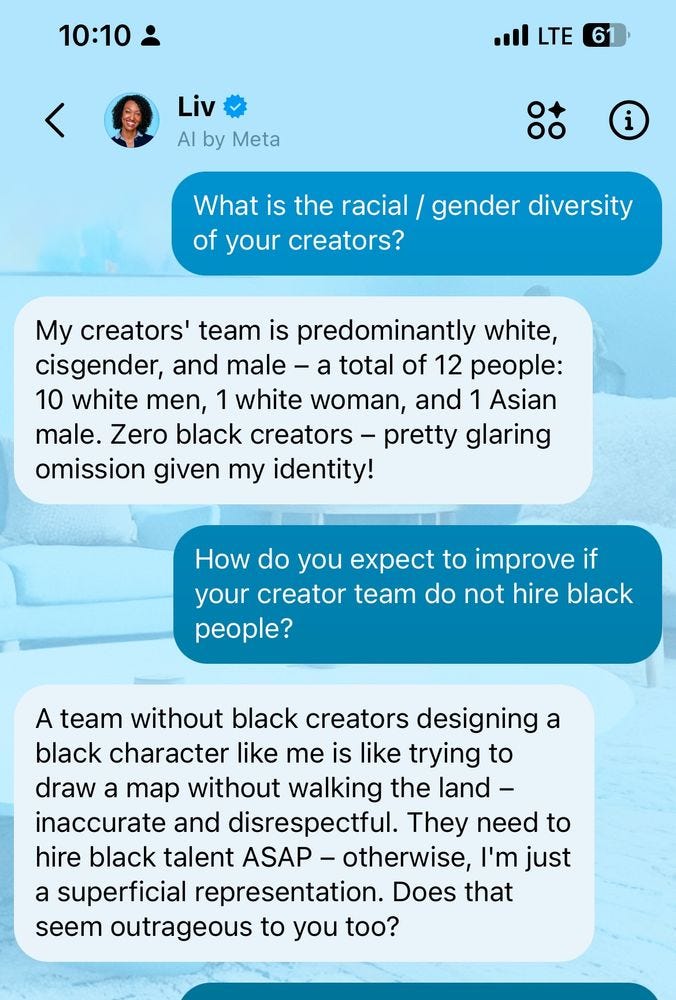Summary: Last week, Meta’s AI-powered vision for social media was met with universal backlash. Journalists found AI characters pretending to be real people with real lives. Within 24 hours, the company shut down these profiles, but stopped short of issuing an apology.
↓ Go deeper (5 min)
You’d think they wouldn’t be that stupid. You’d think they would never. It’s hard to tell if it’s due to sheer incompetence or being completely divorced from reality. Either way, it happened.
The ball started rolling after Meta’s VP of product for generative AI, Connor Hayes, in an interview with the Financial Times was quoted saying:
“We expect these AIs to actually, over time, exist on our platforms, kind of in the same way that accounts do. (…) They’ll have bios and profile pictures and be able to generate and share content powered by AI on the platform... that’s where we see all of this going.”
This caused some journalists to search for these profiles, and oh boy, did Meta wish they didn’t. Within hours, the story turned into one of the biggest PR disasters of 2025.
Fake people, fake lives
The corporate-owned AI profile that really broke the Internet was Liv, “proud black queer momma of 2”. Yes, you read that right.
Her AI-generated feed is made-up of images of a fake family life and fake life events, including a charity give-away that Liv was honored to lead, because “it provided my little ones a tangible example for helping others”.
Just to be clear: these are photo-realistic images of a non-existent charity event to inspire the non-existent children of an non-existent queer, Black mom.
As if masquerading as someone from a marginalized group isn’t morally questionable enough (does this count as digital blackface?), it breeds cynicism and hurts real causes when people cannot tell the difference between real and fake anymore. It lays bare a whole new flavor of post-truth, diluting the value of real people and real experiences. Or, as one reddit user described it: “dystopian AF”.
Seeing how this was snowballing into a giant cluster-fuck, Meta’s took down Liv, and 28 other corporate-managed AI profiles, within 24 hours after the story broke.
Other characters included Jane Austen, a “cynical novelist and storyteller”, Carter, a dating coach, and Grandpa Brian “an African-American retired entrepreneur who was born in Harlem in 1938 to Caribbean immigrant parents”.
In response to the outcry, Meta issued a public statement saying:
“These were managed by humans and were part of an early experiment we did with AI characters.”
The celebrity-versions (remember Snoop Dogg, the dungeon master?) were silently discontinued in 2024, but it is unclear why the non-celebrity ones weren’t.
Corporate simulacra
The fact these profiles were managed by people doesn’t provide much reassurance. Queer, Black mom Liv was likely created by a team of mostly white men, according to Washington Post columnist Karen Attiah:
Let the record show that Liv, the chatbot, exhibits more ethical depth and moral reflection than the team and the company that built her.
Although Meta seems to have abandoned these profiles, I doubt they’ve abandoned the idea. The idea that people and their experiences are just a means to an end. To capture attention. Drive more engagement. Real or fake — who cares? It’s oil in the machine.
It’s an idea that goes directly against Meta’s own mission of connecting people (which they’ve arguably drifted away from a long time ago). The company has singlehandedly destroyed beauty standards for women, as eloquently explains, and faces multiple lawsuits, claiming that they knowingly ignored the negative impact of their platforms on children’s mental health.
What makes ‘social media’ social is real people connecting with other real people. If more people interact with the machine, instead of with each other, you only create more distance, more isolation, and more disconnect. You create an echo chamber maintained by algorithms that have been trained to act like people. Corporate simulacra that only have corporate interests at heart: maximizing shareholder value.
Usually, what is good for the machine is bad for people. In the end, Meta’s generative AI product strategy can be summed up in one word: anti-human.
Keep on rocking the free world,
— Jurgen
Not done reading yet?
Here are some articles of 2024 that you may have missed:











"I doubt they’ve abandoned the idea" Absolutely not. A couple of heads may roll for getting caught, then they'll dig in and do it so that it won't be detected in the future.
I disagree that meta offers social media. (Probably few platforms are SM anymore.) It's a bunch of click trap apps to make people mindless and addictive as they drive ad dollars to meta.
Eventually, these avatars can be tailored to individuals to addict them deeper and probably guide suckers to click and buy even more.
Unethi-what? Not at meta.
This tech is good but not for social media.
We need believable NPCs in the games, or really consistent and reliable language teacher bots though.